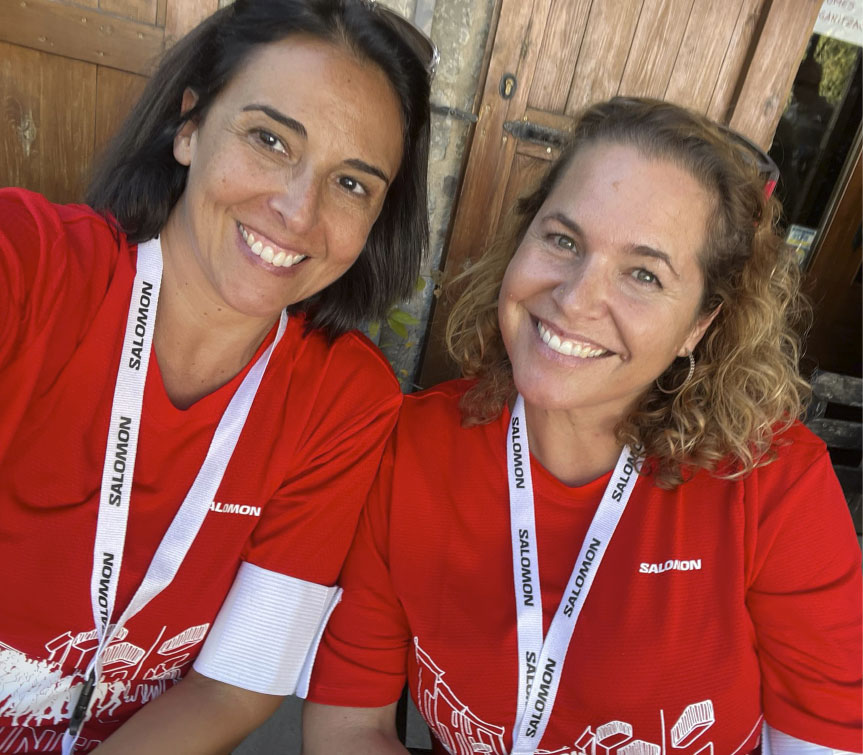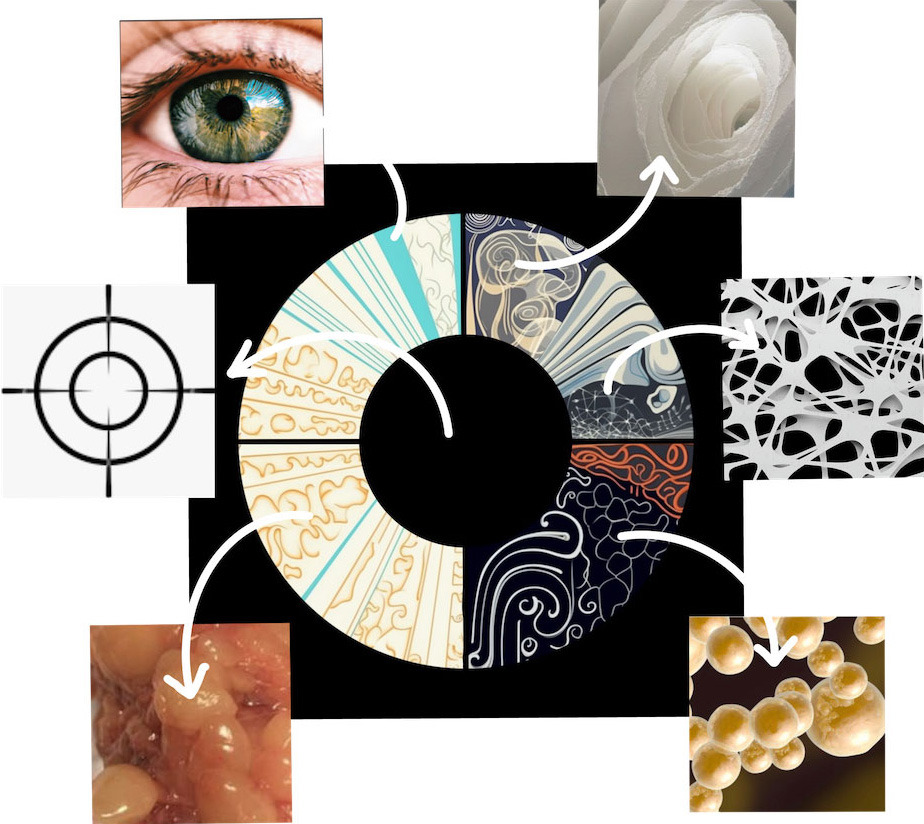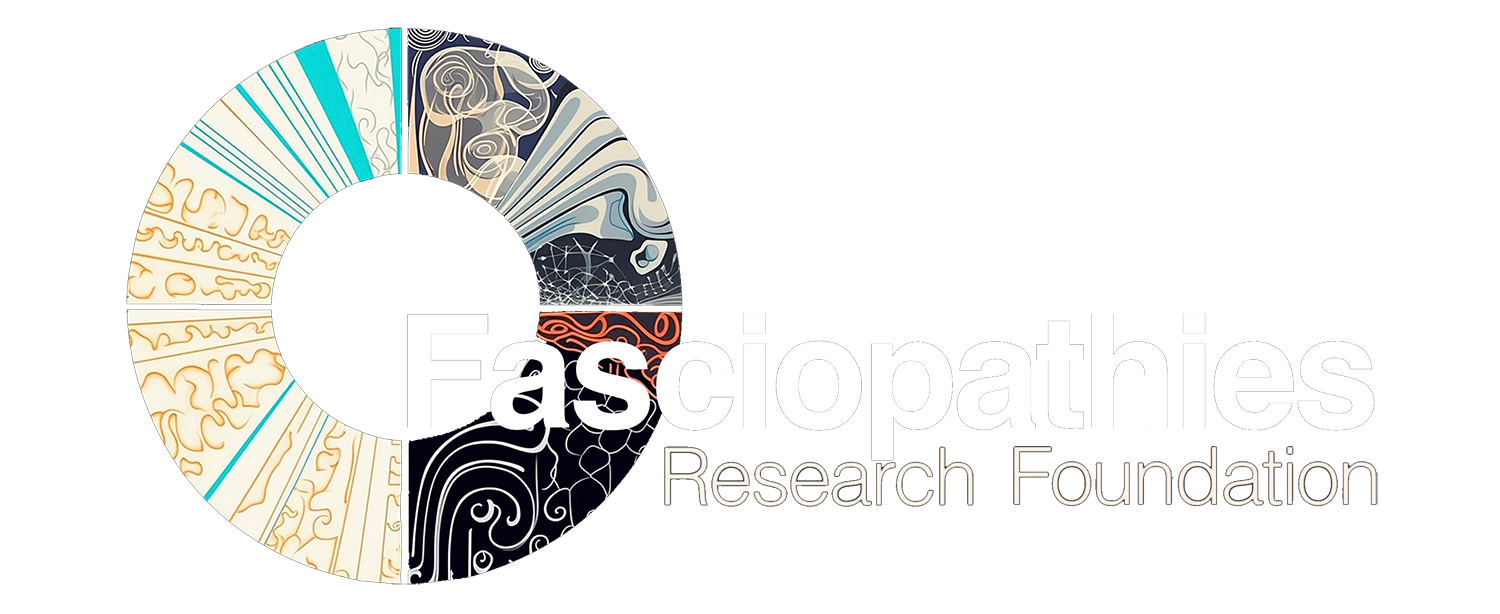Background and commitment
Our Background: History, Name, Logo, and Establishment
Foundation History
The Fasciopathies Research Foundation was conceived in the spring of 2023 by Dr Marta Expósito Izquierdo and Dr Marta Cañís Parera. Their collaborative journey began in 2019, focusing on the study of a specific type of lower back pain. Throughout their research, they identified a crucial discovery: fatty fascia, a tissue often overlooked in standard medical practice, can be a significant source of pain. Realising the widespread neglect of fibro-fatty tissue dysfunction and its role in various conditions, they felt the need to address this issue. Their mission centred on raising awareness and improving the understanding of these conditions. Thus, they created a platform dedicated to promoting education and research in this underexplored field, giving rise to the Fasciopathies Research Foundation.

Foundation Name
The name ‘Fasciopathies Research Foundation’ was deliberately chosen to highlight an emerging, yet still underappreciated, area of human pathology: fibro-fatty tissue dysfunction, or fatty fascia dysfunction. Historically, the lack of clear terminology for fibro-fatty tissue has contributed to its marginalization within the medical community. For this reason, we adopt a modern and inclusive definition of fascia, encompassing all connective tissues, including adipose tissue. This new perspective represents a crucial shift in the understanding of human anatomy and aligns with the innovative ethos of our foundation. Currently, the term ‘fasciopathy’ is preferred over ‘plantar fasciitis,’ as chronic cases do not exhibit signs of inflammation. Therefore, the foundation advocates the use of ‘fasciopathy’ as a broad term to describe fascial dysfunctions throughout the body that present with pain and functional limitations, but generally without inflammatory signs.

Foundation Logo
Our logo is a creative amalgamation of symbols embodying our mission’s core principles:
- Awareness: The eye symbolizes our dedication to raising awareness about this often overlooked field.
- Focus on fascia: A sniper’s reticle mirrors our precise, methodical approach to fascia research.
- Complexity of the network: Interwoven membranes and filaments illustrate the fascial system’s intricate complexity within the body.
- Fatty tissues: The depiction of fatty lobules and cells highlights the often-overlooked fatty fascia as a potential pain source.
Foundation Establishment
The idea of creating the Foundation was solidified when Dr. Expósito and Dr. Cañís gathered a committed board of trustees, made up of Judith Mañé Palau, Sonia Arans Ruiz, Ester Virgili Beneyto, and Alba Peña Serrat. An anonymous benefactor, driven by a spirit of solidarity, provided the initial funding, which allowed the official establishment of the Foundation before a notary on 29 July 2023. Since 6 February 2024, the Foundation has been officially registered with the Department of Justice of the Generalitat de Catalunya under registration number 3.379.

Our Commitment: Mission, Vision, Values, and Goals
Our goals focus on three main areas: research, outreach, and education.
Research
We support innovative studies to better understand fasciopathies, including anatomical and histological research as well as clinical trials.
Education
We collect and share information about fasciopathies through www.fasciopathies.info, providing resources with text and images and adopting a translational approach tailored to all audiences: patients, healthcare professionals, and researchers.
